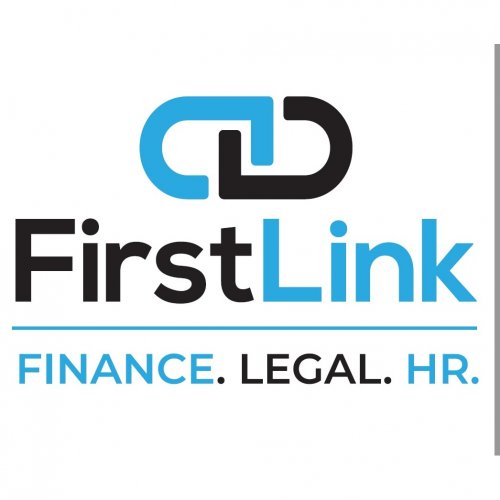Best Business Lawyers in Port of Spain
Share your needs with us, get contacted by law firms.
Free. Takes 2 min.
List of the best lawyers in Port of Spain, Trinidad and Tobago
About Business Law in Port of Spain, Trinidad and Tobago
Port of Spain, the capital city of Trinidad and Tobago, is a thriving hub for business and commerce. The city offers numerous opportunities for both local and international entrepreneurs to establish and grow their businesses. As with any business venture, it is essential to understand the legal aspects and comply with the relevant laws and regulations to ensure smooth operations and mitigate potential risks.
Why You May Need a Lawyer
There are several situations where seeking legal advice from a lawyer specializing in business law in Port of Spain, Trinidad and Tobago can be beneficial:
1. Business Formation: When starting a business, a lawyer can guide you through the process of entity selection, company registration, and drafting necessary legal documents.
2. Contracts and Agreements: Lawyers can assist in reviewing, drafting, and negotiating contracts and agreements, such as supplier contracts, partnership agreements, and lease agreements, to protect your interests.
3. Employment Issues: Legal advice is crucial when dealing with employment contracts, termination, discrimination claims, or any labor law-related concerns.
4. Intellectual Property Protection: Lawyers can help you understand and protect your intellectual property rights, including trademarks, copyrights, and patents.
5. Dispute Resolution: In case of disputes, a lawyer can provide legal representation and assist in resolving conflicts through negotiation, mediation, or litigation.
Local Laws Overview
Businesses in Port of Spain, Trinidad and Tobago need to adhere to various laws and regulations. Some key aspects include:
1. Company Law: Business operations, incorporation, reporting, and compliance requirements are governed by the Companies Act of Trinidad and Tobago.
2. Taxation: Businesses must comply with local tax laws, including corporate income tax, value-added tax (VAT), and payroll taxes.
3. Employment Law: Businesses must abide by employment laws, which cover areas such as minimum wage, working hours, termination, labor disputes, and health and safety regulations.
4. Intellectual Property Law: Intellectual property rights are protected under the Intellectual Property Act, encompassing trademarks, copyrights, patents, and trade secrets.
5. Consumer Protection: Businesses are obligated to comply with consumer protection laws that ensure fair trade practices and protect consumer rights.
Frequently Asked Questions
1. Can a foreigner easily start a business in Port of Spain, Trinidad and Tobago?
Yes, foreign individuals and entities can start a business in Port of Spain, Trinidad and Tobago. However, they may need to fulfill certain requirements, such as obtaining the necessary work permits or licenses.
2. What are the main types of business entities in Port of Spain, Trinidad and Tobago?
The main types of business entities in Port of Spain, Trinidad and Tobago are sole proprietorships, partnerships, private limited companies, and public limited companies.
3. How can I protect my business idea or invention?
To protect your business idea or invention, you can consider filing for intellectual property rights, such as patents, trademarks, or copyrights. Consulting with a lawyer specializing in intellectual property law is recommended.
4. What are the tax requirements for businesses in Port of Spain, Trinidad and Tobago?
Businesses in Port of Spain, Trinidad and Tobago are subject to corporate income tax, value-added tax (VAT), and other taxes. It is crucial to comply with tax regulations, maintain proper records, and file tax returns as required.
5. How can I resolve a commercial dispute?
Commercial disputes can be resolved through negotiation, mediation, arbitration, or litigation. Seeking legal advice from a business lawyer can help assess the best course of action based on the specific circumstances.
Additional Resources
For further information and assistance regarding business law in Port of Spain, Trinidad and Tobago, consider referring to the following resources:
- The Ministry of Trade and Industry: Provides information on business registration, legislation, and trade-related matters. Visit their website at www.tradeind.gov.tt.
- The Trinidad and Tobago Chamber of Industry and Commerce: Offers resources, networking opportunities, and industry insights for businesses in Trinidad and Tobago. Visit their website at www.chamber.org.tt.
- The Intellectual Property Office of Trinidad and Tobago: Provides information on intellectual property rights and registration processes. Visit their website at www.ipo.gov.tt.
Next Steps
If you require legal assistance or advice in business matters in Port of Spain, Trinidad and Tobago, it is recommended to:
1. Research and identify suitable business lawyers or law firms specializing in business law.
2. Schedule a consultation to discuss your specific needs and concerns.
3. Prepare any relevant documents or information to bring to the meeting.
4. During the consultation, discuss your situation, ask questions, and explore the available options.
5. Based on the consultation, decide on the best course of action and follow the lawyer's guidance to proceed effectively and legally in your business endeavors.
Lawzana helps you find the best lawyers and law firms in Port of Spain through a curated and pre-screened list of qualified legal professionals. Our platform offers rankings and detailed profiles of attorneys and law firms, allowing you to compare based on practice areas, including Business, experience, and client feedback.
Each profile includes a description of the firm's areas of practice, client reviews, team members and partners, year of establishment, spoken languages, office locations, contact information, social media presence, and any published articles or resources. Most firms on our platform speak English and are experienced in both local and international legal matters.
Get a quote from top-rated law firms in Port of Spain, Trinidad and Tobago — quickly, securely, and without unnecessary hassle.
Disclaimer:
The information provided on this page is for general informational purposes only and does not constitute legal advice. While we strive to ensure the accuracy and relevance of the content, legal information may change over time, and interpretations of the law can vary. You should always consult with a qualified legal professional for advice specific to your situation.
We disclaim all liability for actions taken or not taken based on the content of this page. If you believe any information is incorrect or outdated, please contact us, and we will review and update it where appropriate.
Browse business law firms by service in Port of Spain, Trinidad and Tobago
Port of Spain, Trinidad and Tobago Attorneys in related practice areas.















